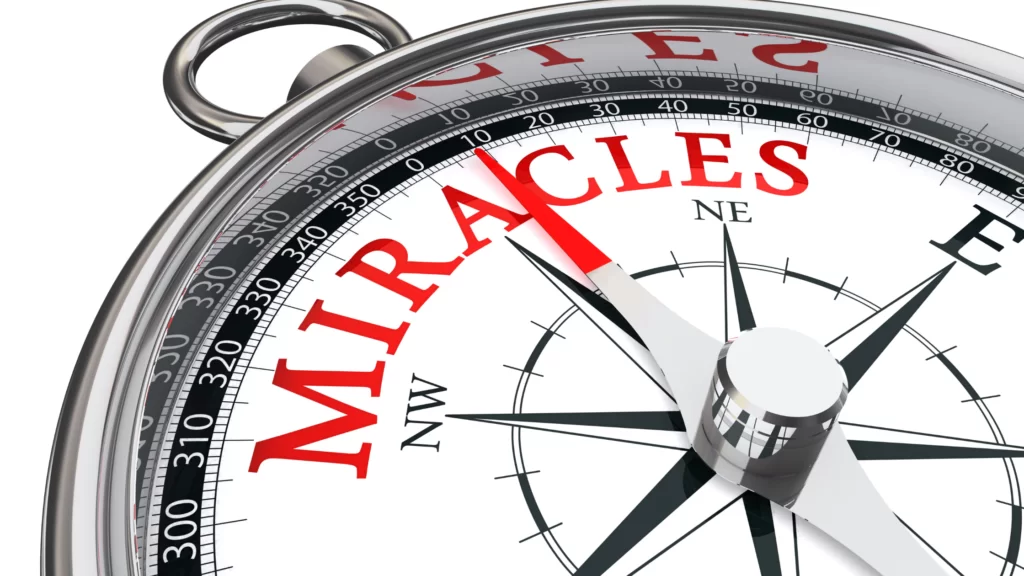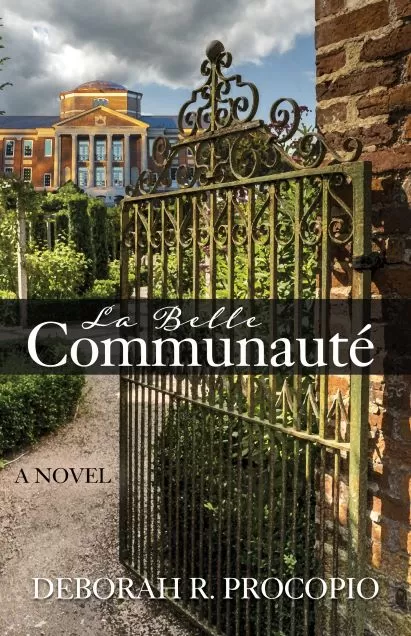Next on the Holy Spirit gift list is that of miracles! And to be honest, the definition is pretty simple – supernatural intervention by God that goes against the natural order.
Biblical Examples
Examples exist throughout scripture; I will begin with the Old Testament. When the children of Israel get delivered from their bondage in Egypt, God sends Moses and Aaron to perform several miracles. I will only give one scripture quote concerning the plague of darkness.
21 Then the Lord said to Moses, “Stretch out your hand toward the sky so that darkness spreads over Egypt—darkness that can be felt.” 22 So Moses stretched out his hand toward the sky, and total darkness covered all Egypt for three days. 23 No one could see anyone else or move about for three days. Yet all the Israelites had light in the places where they lived.” (Ex 9:21-23 NIV)
You may not think of this as a miracle, but it is. God may have created the darkness using some natural phenomena, but he allowed light where Israel lived. This type of miracle is a running theme throughout most of the Egyptian plagues.
A few other Old Testament miracles are:
- Exo 14: The parting of the Red Sea
- Exo 16: God sent daily manna from Heaven
- 2 Kings 6: 5-7: Elisha threw a stick in the water and caused an ax head to float
- Dan 3: The three Hebrews were thrown into the fiery furnace
- Dan 6: Daniel in the lion’s den
A few New Testament examples are:
- Matt 14: 13-21: Jesus fed five thousand
- Matt 14:22-23: Jesus walked on water – and so did Peter until fear crept in
- Matt 17: 24-27: Peter retrieved a coin from the mouth of a fish to pay his and Jesus’ taxes
- John 2: 1-11: Jesus turns water into wine
- Acts 28: 3-6: Paul was bit by a viper but suffered no ill effects
Did you notice that there is no mention of healings on my shortlist? That’s because healings are, well, healings! I get it. When the doctor says there is no hope and God shows up, we say the recovery was miraculous.
What’s the Difference?
First, let’s look at Zondervan’s NIV Concordance to see the words and their definitions used in the scriptures. For example, the Old Testament uses the words “mopet” which means wonder, sign, miracle, or portent, and “pala,” which means to be wonderful or be amazing. Those two definitions are basically the same.
In the New Testament, the word miracle comes from three different words: “dynamis,” which is power, ability, miracle with an extended meaning (another way of saying) of a person or supernatural being who has administrative power; “ergon,” which means work, deed, activity, task, job and “semeion” which means “miraculous sign, signal, or mark.”
While the Old Testament words for miracles are about the same, the New Testament has some variations. Although it is still something that defies natural order, it has other descriptions. For example, dynamis means miracle, as we think of it, but it can include a person or supernatural being with administrative powers. And then there’s semeion that defines a miracle as a sign or mark. Meaning the miracle was used as a sign to confirm the written scriptures. Interesting!
Healing
I believe most of us consider the word healing to be related to physical issues. Therefore, I will look at three Greek words that describe healing in the New Testament: therapeuo, sozo, and iaomai. Although each of them points to healing, they have different meanings.
The word “therapeuo” means to serve, to give help, take care of another; by extension (another way of saying it): to heal. In other words, a person such as a physician releases the healing. So, for example, if you came down with strep throat, you would see a doctor who would prescribe penicillin, and within a few days, you would feel better.
“Sozo” is another Greek word translated as heal, which means to save, rescue, deliver, and by extension, heal. Sozo is also quite different from what we think healing means. This term is generally regarded as freedom from emotional issues such as unforgiveness or bitterness. However, it can also refer to a person being made whole in body, soul, and spirit and may refer to inner healing.
“Iaomai” means to heal, to be healed, freed. It’s a pretty self-explanatory word. Someone gets healed – that’s it! While all three terms mean “to heal,” the first two describe it differently. Let’s look at all three of them used in a story.
All Three Used in One Passage
All three of the Greek words for healing occur in the following passage:
As Jesus was on his way, the crowds almost crushed him. 43 And a woman was there who had been subject to bleeding for twelve years, but no one could heal (therapeuo – a doctor couldn’t heal) her. 44 She came up behind him and touched the edge of his cloak, and immediately her bleeding stopped.
45 “Who touched me?” Jesus asked.
When they all denied it, Peter said, “Master, the people are crowding and pressing against you.”
46 But Jesus said, “Someone touched me; I know that power has gone out from me.”
47 Then the woman, seeing that she could not go unnoticed, came trembling and fell at his feet. In the presence of all the people, she told why she had touched him and how she had been instantly healed. (iaomai: to be healed) 48 Then he said to her, “Daughter, your faith has healed (sozo – delivered) you. Go in peace.” (Luke 8:42-48 NIV)
I find it interesting that Jesus used a different way to describe the woman’s healing. Her faith didn’t just heal her, it delivered her. That’s something to meditate on!
Miracles vs. Healings
Miracles and healings are not considered the same thing. Miracles defy the laws of nature while healings restore a person’s health. Undoubtedly, the gift of miracles and healing will need a gift of faith to operate. Do you have the faith to lift your hands and part the waters? Could you lay your hands on a person with quadriplegia and see them jump out of their wheelchair and run around the room? Hmmm. Something for spiritual explorers to ponder.
Until next time under the palm, be blessed!



